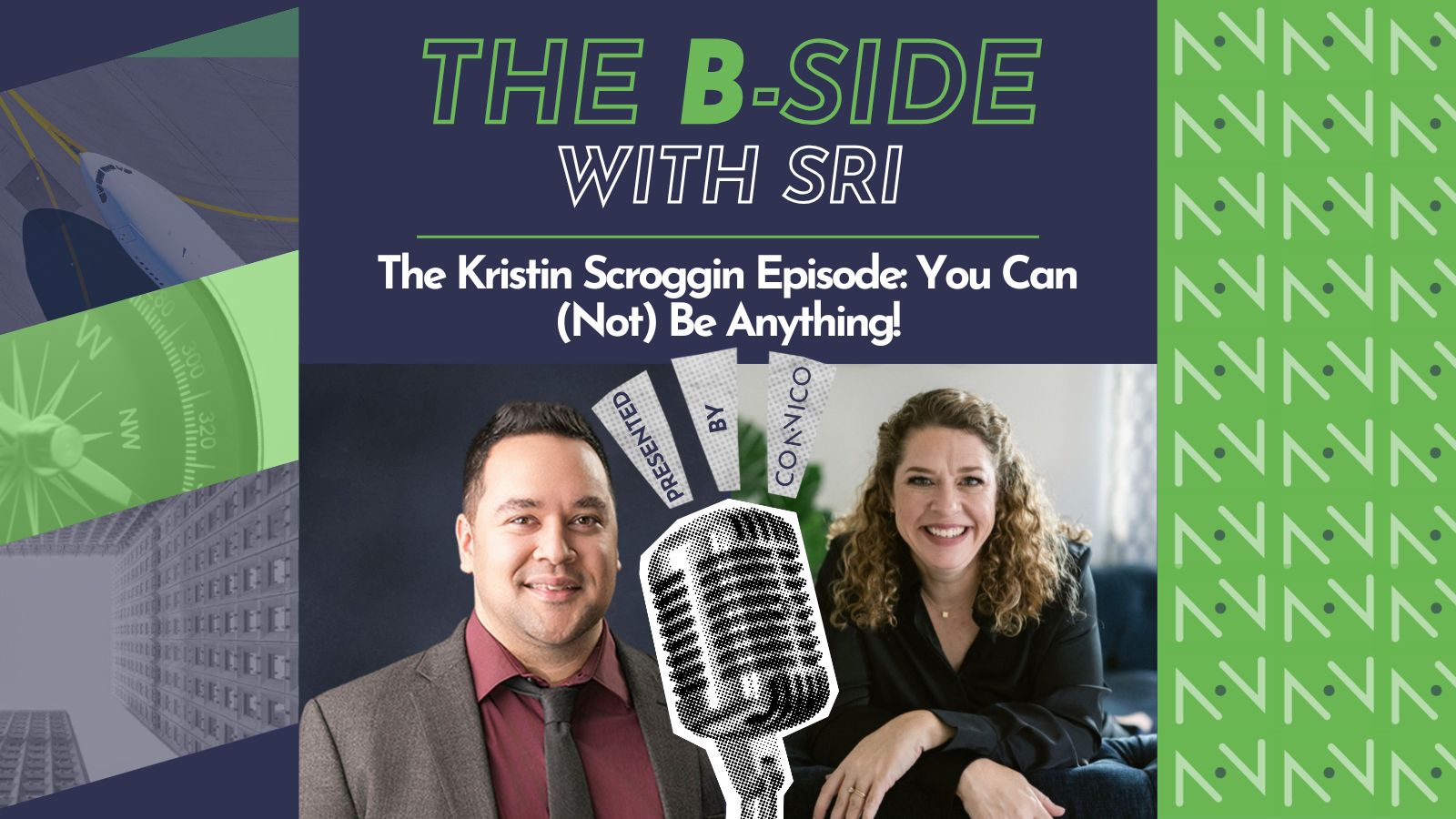Raising Tomorrow’s Workforce: How early beliefs shape workplace realities

Can you really be anything you want when you grow up?
In this lively debate, Kristin Scroggin, generational diversity specialist at GenWHY, and Sri Kumar, President and CEO of Connico, take on the highly contentious question of if sending this message to the next generation is realistic! While Kristin argues that success comes from recognizing and nurturing strengths, Sri believes in the power of big dreams and the possibility of defying the odds. Listen in to find out who’s right!
They explore how ambition, talent, confidence and external factors like support systems and resources influence our career paths. Through engaging stories and playful banter, they discover that success isn’t about doing it all, but about channeling your unique abilities into what you love most.
Packed with laughs and thought-provoking insights, this episode perfectly balances inspiration and reality — making it a must-listen for anyone weighing big dreams with real-world expectations!
Ambition must align with ability
Kristin: Many adults tell kids they can be anything they want to be, but is that really the right message? If they just want it bad enough, can they outwork, outplay, and out-hustle everybody and eventually have whatever their dreams are? My big argument to this always is: I want to be a supermodel, but I'm 5'5" and not in perfect shape. My wanting to be a supermodel is never going to make me do it. I don't have the natural capability, physicality, or even the drive to be able to do it.
It’s worthwhile to work on skills that bring you joy
Sri: This is all similar to the argument made about improving communication skills versus improving technical skills like math, and this really comes into play in our industry. I’d argue that it’s just as useful to improve any skill that you find worthwhile, even if it’s something offbeat like juggling. I believe that when someone tells you you're not good at something, instead of getting discouraged, you should decide how valuable that skill is and then put in the work to get better at it.
Success lies in playing to your strengths, personally and on teams
Kristin: I could go to all the same classes as Sri, sit in the same meetings, do everything the same. But I know that I don't have Sri’s impact or charisma — the natural spark that makes people want to follow him. The truth is, that can't be taught. That’s why the idea that “you can do anything if you just want it enough” feels limiting. If I don’t have those innate abilities, why not help me realize earlier that, for example, I might be terrible at math but an amazing communicator? Then, I could partner with someone like Sri to handle the math while I shine in my own lane. That’s the key: figure out what you’re great at and build teams where everyone thrives doing what they do best, instead of pretending we’re all meant to excel at everything.
Confidence is key to overcoming analysis paralysis and taking action
Sri: You know what? Maybe the message isn’t that you “can't do anything.” It's that you can do anything, but you can't do everything. What matters is the doing — you have to get up and take action.
Kristin: And it all comes down to confidence. Confidence is something you have to practice. Many people get stuck in analysis paralysis, overthinking all the ways things could go wrong, and end up taking no action at all. But the truth is, confidence builds like a snowball! If you push yourself and build confidence, eventually, you’ll look around and wonder why others don’t believe in themselves as much as you believe in you. The key is starting — you don’t need to be perfect; just take that first step.



